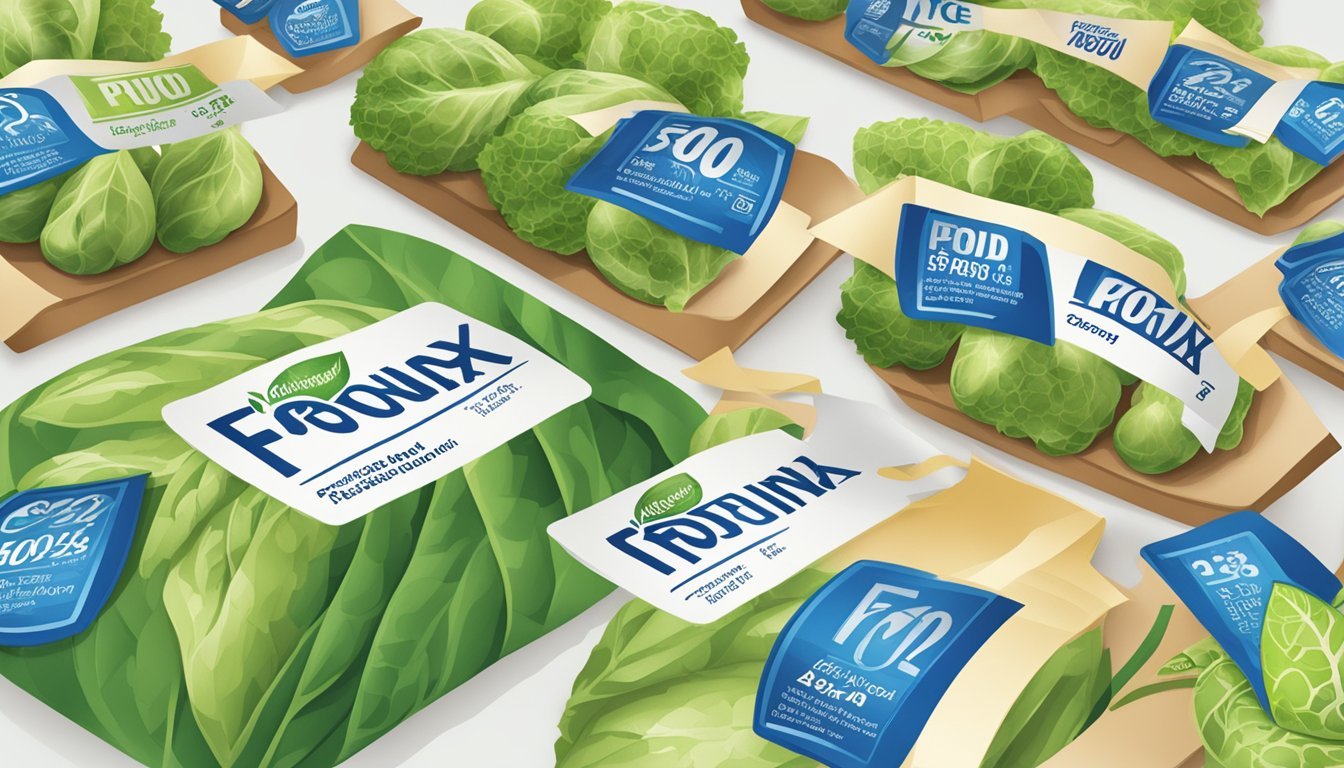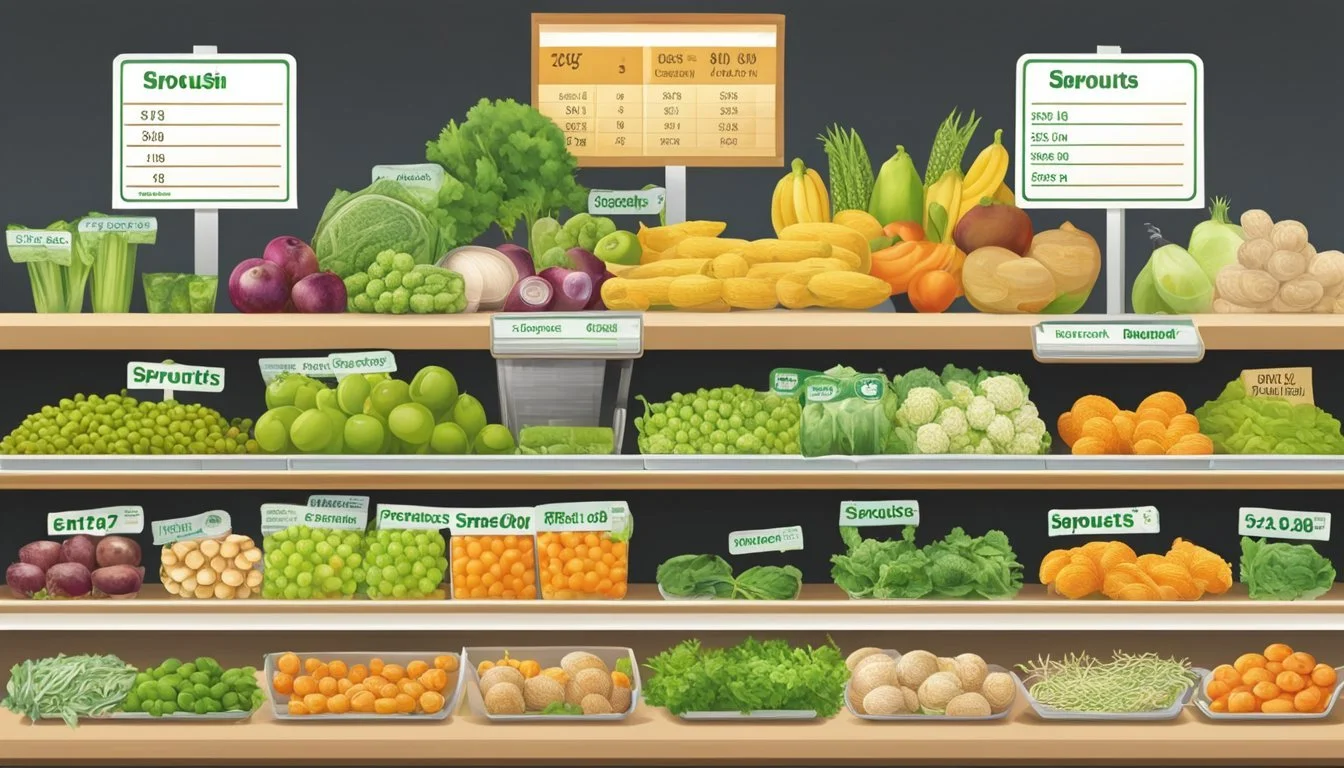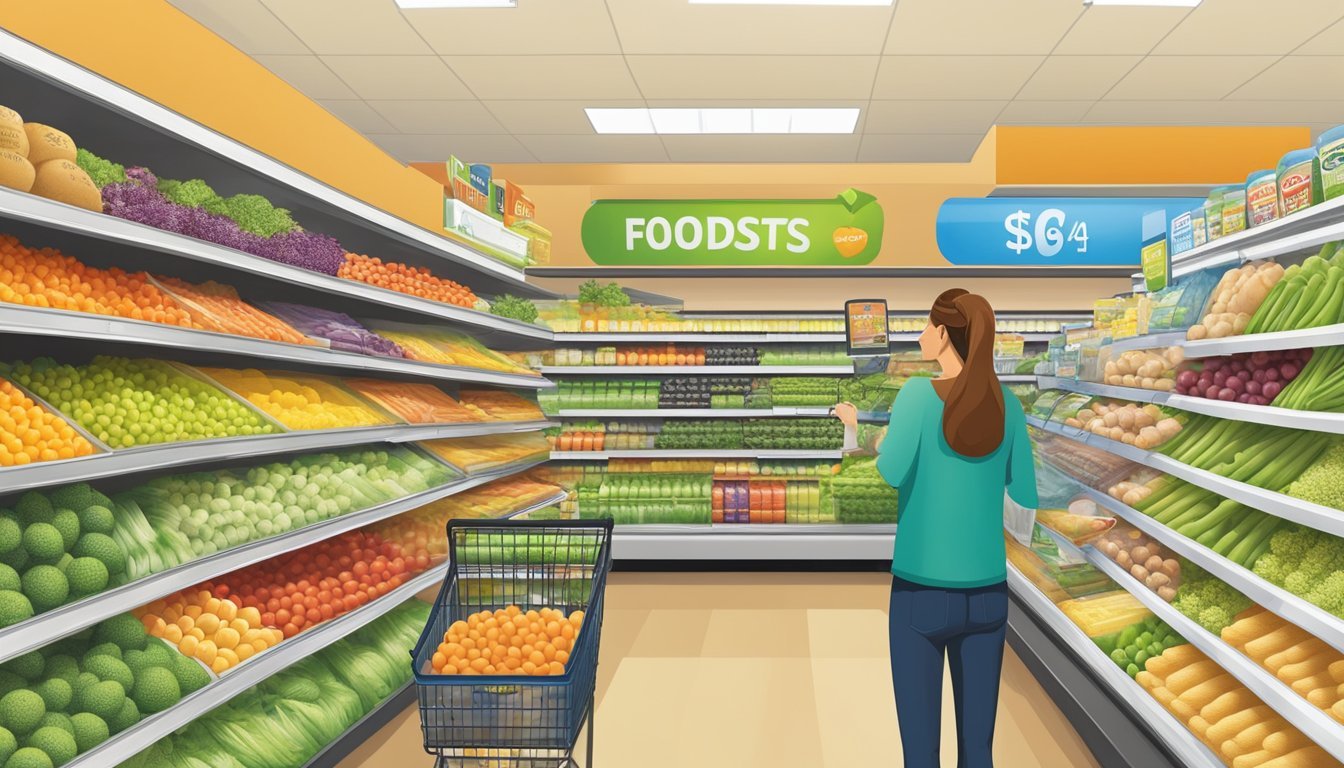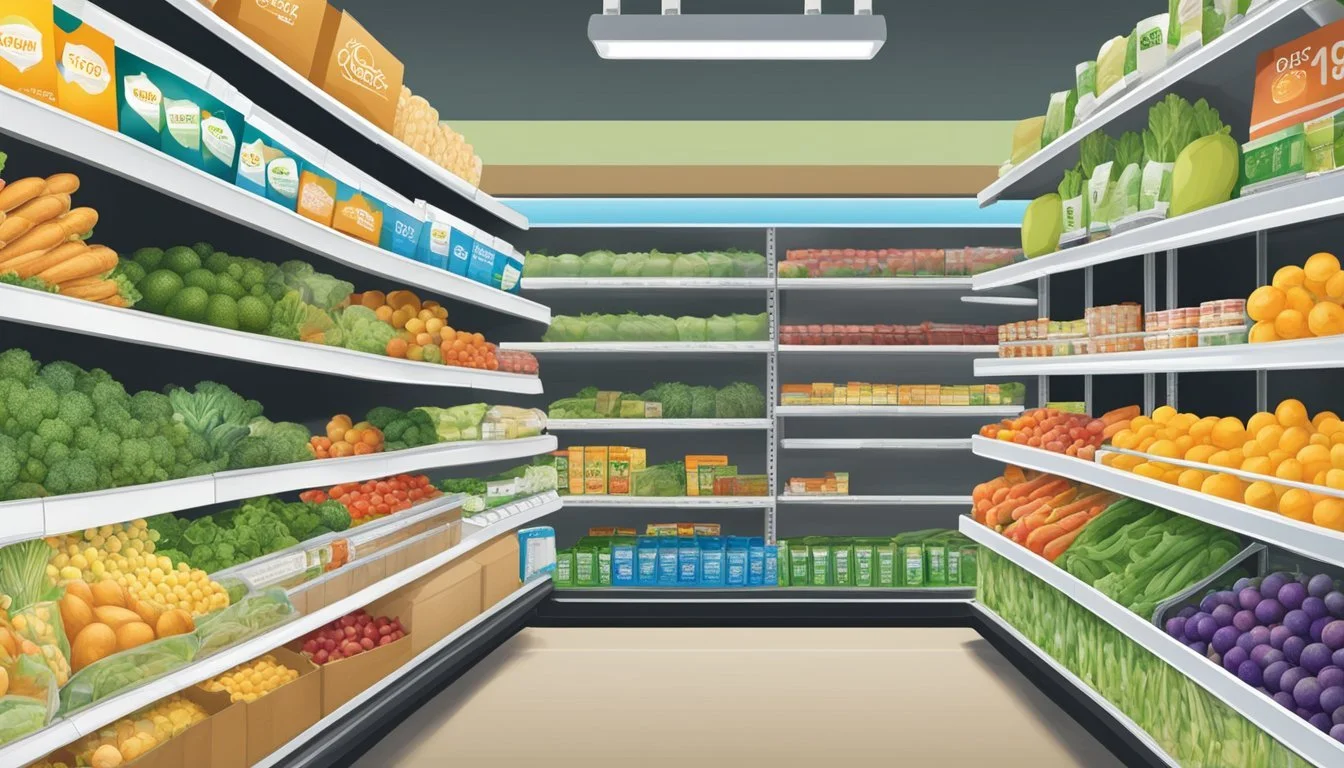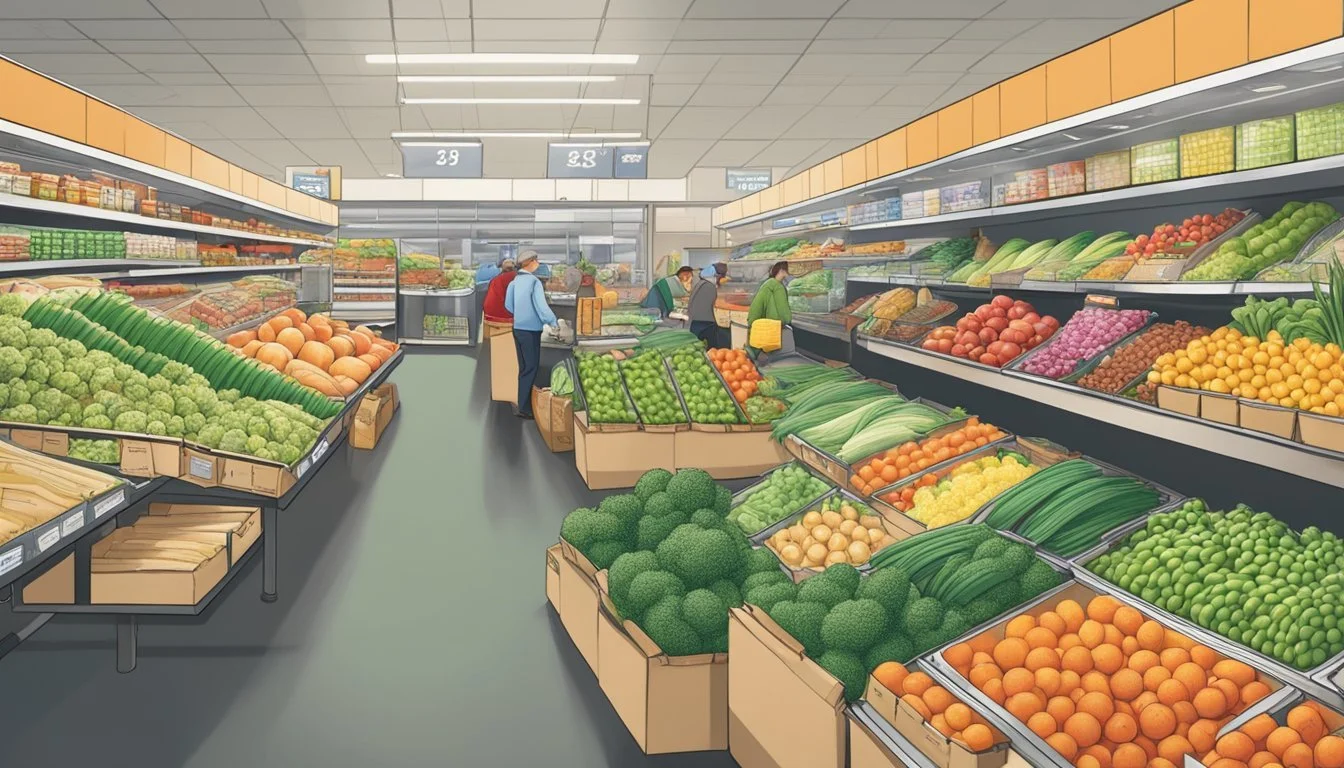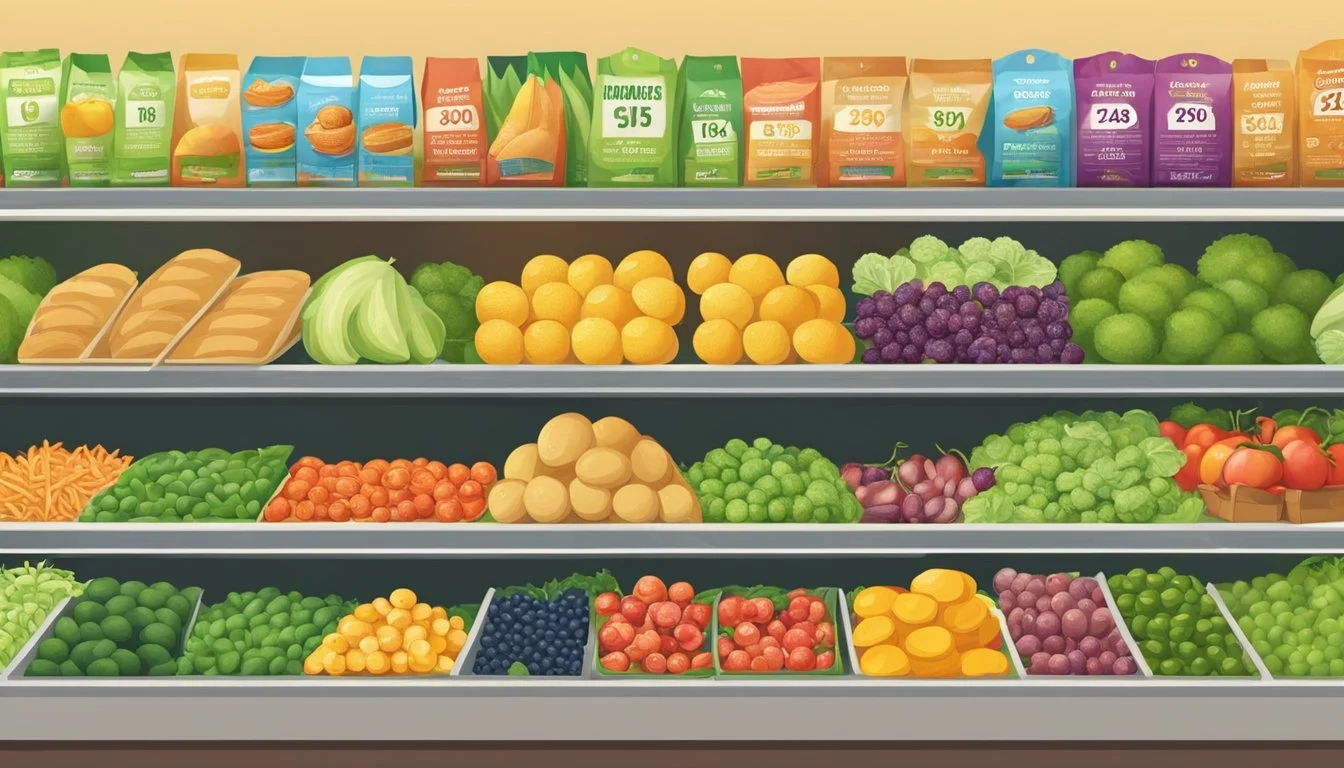Is FoodMaxx Cheaper Than Sprouts?
A price comparison of budget-friendly grocery stores
Grocery shopping on a budget requires comparing prices across different stores. FoodMaxx and Sprouts are two popular options for cost-conscious consumers. While both aim to offer competitive prices, they cater to slightly different market segments.
FoodMaxx generally offers lower prices than Sprouts on many items, particularly for everyday staples and non-organic products. This price difference can lead to significant savings for shoppers who prioritize cost over other factors. FoodMaxx focuses on providing a no-frills shopping experience with an emphasis on value.
Sprouts, on the other hand, specializes in natural and organic products. While its prices may be higher than FoodMaxx for comparable items, Sprouts often offers competitive rates on organic produce and specialty health foods. The store's pricing strategy reflects its focus on health-conscious consumers who are willing to pay a premium for certain products.
Understanding FoodMaxx and Sprouts
FoodMaxx and Sprouts Farmers Market are two distinct grocery store chains operating in California and other states. They cater to different market segments with unique offerings and pricing strategies.
Overview of FoodMaxx
FoodMaxx is a discount supermarket chain focused on providing low prices to budget-conscious shoppers. The stores typically feature a no-frills layout and emphasize value.
FoodMaxx offers a wide range of grocery items, including fresh produce, meat, dairy, and packaged goods. Their pricing strategy aims to be consistently lower than traditional supermarkets.
The chain operates primarily in California and Nevada. FoodMaxx is known for its "Wall of Values" featuring deeply discounted items.
Customers at FoodMaxx often bag their own groceries and may need to bring their own shopping bags to keep costs down.
Overview of Sprouts Farmers Market
Sprouts Farmers Market positions itself as a health-focused grocery store, emphasizing natural and organic products. The chain aims to provide fresh, healthy options at competitive prices.
Sprouts stores are typically smaller than traditional supermarkets and feature an open layout reminiscent of a farmers market. They offer a wide selection of organic produce, bulk foods, vitamins, and supplements.
The chain operates in multiple states across the U.S., with a significant presence in California. Sprouts is known for its extensive produce section and frequent sales on fruits and vegetables.
Sprouts also carries a variety of specialty diet items, catering to vegan, gluten-free, and other dietary preferences. The stores often include a deli section with prepared foods and a bakery.
Comparing Prices and Value
FoodMaxx and Sprouts offer distinct pricing strategies and product selections. A closer look at their pricing across various departments reveals key differences in value proposition for shoppers.
Price Comparison Basics
FoodMaxx typically positions itself as a discount grocer, focusing on everyday low prices. The store emphasizes no-frills shopping experiences to keep costs down. Sprouts, on the other hand, markets itself as a health-focused retailer with competitive pricing on natural and organic products.
Recent price surveys indicate FoodMaxx generally offers lower prices on many staple items. The store's pricing strategy aims to attract budget-conscious shoppers looking for overall savings on their grocery bills. Sprouts often has higher prices on conventional items but may offer better deals on specialty health foods and organic options.
Comparative Analysis of Produce
Produce departments show significant price variations between the two stores. FoodMaxx usually offers lower prices on conventional fruits and vegetables. Their selection tends to focus on popular, high-volume produce items.
Sprouts excels in organic and specialty produce offerings. While their conventional produce might be pricier, they often have competitive deals on organic items. Sprouts' "Double Ad Wednesdays" feature overlapping weekly specials, potentially offering extra savings on produce.
FoodMaxx's produce prices:
Apples: $0.99/lb
Bananas: $0.59/lb
Carrots: $0.79/lb
Sprouts' produce prices:
Organic apples: $1.99/lb
Organic bananas: $0.69/lb
Organic carrots: $1.29/lb
Meat and Deli Price Analysis
FoodMaxx typically offers lower prices on conventional meat cuts. Their meat department focuses on popular choices and family-size packages. Sprouts, while generally pricier, provides a wider selection of organic, grass-fed, and specialty meats.
FoodMaxx meat prices:
Ground beef: $3.99/lb
Chicken breast: $2.49/lb
Pork chops: $2.99/lb
Sprouts meat prices:
Organic ground beef: $6.99/lb
Free-range chicken breast: $4.99/lb
Grass-fed pork chops: $5.99/lb
Deli options at FoodMaxx are limited but budget-friendly. Sprouts offers a more extensive deli selection, including prepared foods and specialty items, often at higher price points.
Dairy Section Cost Comparison
In the dairy aisle, FoodMaxx generally maintains lower prices on conventional milk, cheese, and yogurt. Their focus is on popular brands and larger package sizes to appeal to families and budget shoppers.
Sprouts offers a wider variety of dairy alternatives and organic options. While their conventional dairy prices may be higher, they often have competitive deals on plant-based milks, organic yogurts, and specialty cheeses.
FoodMaxx dairy prices:
Gallon milk: $2.99
Large eggs: $2.49/dozen
Greek yogurt: $3.99/32 oz
Sprouts dairy prices:
Organic gallon milk: $5.99
Cage-free large eggs: $3.99/dozen
Organic Greek yogurt: $4.99/32 oz
Assessing Quality and Selection
FoodMaxx and Sprouts differ significantly in their approaches to product quality and selection. These differences impact customer choices and shopping experiences.
Quality of Fresh Foods
FoodMaxx focuses on providing affordable options across its fresh food departments. Their produce section offers a mix of conventional and some organic items at competitive prices. Meat quality at FoodMaxx is generally standard, with an emphasis on value cuts and family packs.
Sprouts, in contrast, prioritizes organic and natural products. Their produce department features a wide array of organic fruits and vegetables, often sourced locally when possible. Sprouts' meat counter typically includes higher-grade cuts and organic options, appealing to health-conscious shoppers.
Variety of Dry and Frozen Foods
FoodMaxx carries a broad selection of dry goods and frozen foods, including both name brands and private label options. Their aisles stock everyday staples and basic pantry items. The frozen section offers standard choices in vegetables, prepared meals, and desserts.
Sprouts excels in natural and specialty dry goods. Their shelves feature organic, gluten-free, and alternative diet products. The frozen section at Sprouts includes unique items like organic vegetables, plant-based meals, and specialty desserts. This curation caters to customers seeking healthier or specialized dietary options.
Shopping Experience and Convenience
FoodMaxx and Sprouts offer distinct shopping experiences that cater to different customer preferences. Each store has its own unique layout, product selection, and amenities.
Layout and Store Navigation
FoodMaxx stores typically feature a no-frills warehouse-style layout. Aisles are wide and clearly labeled, making it easy to find items. Products are often displayed in bulk packaging or on pallets. The focus is on efficiency and low prices rather than aesthetics.
Sprouts stores have a more inviting atmosphere with a farmers market-inspired design. The produce section is centrally located and prominently featured. Departments are arranged around the perimeter, with bulk bins and natural products in the center aisles. This layout encourages browsing and discovery of new items.
Additional Services and Amenities
FoodMaxx offers basic services aimed at budget-conscious shoppers. Self-checkout lanes are common, speeding up the checkout process. Some locations have in-store ATMs for customer convenience.
Sprouts provides a range of additional services to enhance the shopping experience. Many stores feature:
Full-service deli counters
Fresh juice bars
Bulk spice sections
Extensive vitamin and supplement departments
Sprouts also offers online ordering with in-store pickup or home delivery options in many areas, catering to customers who prefer a more convenient shopping experience.
Analyzing Target Demographic
FoodMaxx and Sprouts cater to different customer segments based on their pricing strategies and product offerings. Understanding these target demographics helps shoppers determine which store aligns best with their needs and budget.
Demographic Preferences
FoodMaxx appeals to budget-conscious shoppers seeking low prices on everyday grocery items. Its no-frills approach attracts families, students, and individuals looking to stretch their food budget. The store focuses on offering basic staples and household essentials at competitive prices.
Sprouts targets health-conscious consumers willing to pay more for organic and natural products. Its customer base includes middle to upper-income shoppers, fitness enthusiasts, and those with dietary restrictions. Sprouts emphasizes fresh produce, specialty items, and a wide selection of organic options.
Meal Planning on a Budget
A family of 4 can find cost-effective options at both stores, but their approach differs. FoodMaxx offers lower prices on conventional groceries, allowing families to stock up on pantry staples and frozen foods at a discount. This can be beneficial for bulk buying and long-term meal planning.
Sprouts provides affordable organic produce and bulk bin items, which can be advantageous for families prioritizing fresh ingredients. Their sales and promotions on healthy foods can help budget-minded shoppers incorporate more nutritious options into their meal plans.
Sample weekly meal plan costs:
FoodMaxx: $120-$150
Sprouts: $150-$180
By comparing prices and planning meals around store specials, families can optimize their grocery budget at either retailer.
Evaluating Promotions and Savings
Both FoodMaxx and Sprouts offer various ways for customers to save money on their grocery purchases. These include regular discounts and special promotions, as well as membership programs that provide additional benefits.
Regular Discounts and Offers
FoodMaxx frequently provides in-store specials and weekly deals on a variety of products. These promotions often focus on staple items and seasonal produce. Customers can find discounts of up to 50% off select items throughout the store.
Sprouts also offers weekly specials, with a particular emphasis on organic and natural products. Their "72-Hour Sale" features deep discounts on specific items from Friday to Sunday. Sprouts' "Double Ad Wednesdays" allow shoppers to take advantage of both the previous week's and the upcoming week's deals simultaneously.
Both stores use digital flyers to advertise their current promotions, making it easy for customers to plan their shopping trips and maximize savings.
Membership and Loyalty Programs
FoodMaxx does not currently offer a formal loyalty program. However, they provide consistent low prices as part of their business model, aiming to attract budget-conscious shoppers without the need for a membership card.
Sprouts offers a free loyalty program called "Sprouts Rewards." Members earn points on their purchases, which can be redeemed for discounts on future shopping trips. The program also provides personalized offers based on shopping habits and exclusive member-only deals.
Sprouts' mobile app integrates with the rewards program, allowing customers to clip digital coupons, view their points balance, and access personalized offers directly from their smartphones.
Market Position and Competition
FoodMaxx and Sprouts occupy distinct segments in the grocery market, with different pricing strategies and target customers. Their positioning impacts how they compete with other major players in the industry.
Comparison with Other Grocery Chains
FoodMaxx positions itself as a low-cost grocery option, similar to Walmart and Grocery Outlet. It offers competitive prices on a wide range of products, appealing to budget-conscious shoppers. Sprouts, on the other hand, focuses on natural and organic foods, competing more directly with Whole Foods and Trader Joe's.
Walmart and WinCo lead in overall affordability, with prices up to 29% lower than average. This puts pressure on FoodMaxx to maintain its value proposition. Kroger and Safeway occupy a middle ground, balancing price and selection.
Publix and Target differentiate themselves through customer service and store experience, while Aldi keeps costs low with a limited selection of private-label products.
The Impact of Online Retailers
Amazon's entry into the grocery market has disrupted traditional competition. Its acquisition of Whole Foods and launch of Amazon Fresh have forced other chains to improve their online offerings and delivery services.
FoodMaxx and Sprouts have responded by partnering with third-party delivery services. This allows them to compete with Amazon's convenience while maintaining their in-store price advantages.
Online shopping has also increased price transparency, making it easier for consumers to compare costs across different retailers. This has intensified competition and pushed chains to focus on their unique strengths to retain customer loyalty.
Consumer Habit Insights
Consumers' grocery shopping behaviors are evolving, influenced by health consciousness and economic factors. These shifts impact preferences for store selection and product choices.
Understanding Consumer Buying Patterns
Price-conscious shoppers often compare prices across multiple stores. Many use apps or websites to find the best deals before shopping. Bulk buying is common for non-perishable items to save money long-term.
Some consumers prefer one-stop shopping for convenience, while others visit multiple stores to get the best prices on different items. Weekend shopping trips remain popular, but there's a growing trend of more frequent, smaller trips throughout the week.
Loyalty programs and store-brand products increasingly influence purchasing decisions. Many shoppers now opt for store brands to save money without sacrificing quality.
Adaptation to Healthy Eating Trends
Health-conscious consumers are driving demand for organic and natural products. This trend is evident across various income levels, not just among affluent shoppers. Many are willing to pay a premium for perceived health benefits.
Grocery stores are expanding their organic and health food sections in response. Some, like Sprouts, focus primarily on natural and organic offerings. Even discount chains like FoodMaxx are increasing their selection of healthier options.
Plant-based alternatives and "free-from" products (gluten-free, dairy-free, etc.) are gaining popularity. Consumers are reading labels more carefully, looking for clean ingredients and nutritional benefits.
Meal planning around healthy recipes is becoming more common, influencing shopping lists and store choices.
Practical Shopping Tips
Savvy shoppers can maximize their savings at both FoodMaxx and Sprouts by employing strategic tactics. Focusing on seasonal deals and careful planning helps stretch grocery budgets further.
Maximizing Value for Your Money
Make a detailed shopping list before visiting either store. This prevents impulse purchases and overspending. Compare unit prices rather than package prices to find the best deals. Buy store brands when available, as they often offer similar quality at lower costs. Purchase produce in season for better prices and quality. Consider buying in bulk for nonperishable items or frequently used products to save money over time. Use a loyalty card if offered to earn points or receive exclusive discounts. Check weekly ads for both stores to plan meals around sale items.
Navigating Seasonal Deals and Discounts
Both FoodMaxx and Sprouts offer rotating seasonal promotions. Sign up for email newsletters to stay informed about upcoming sales. At Sprouts, take advantage of their "Double Ad Wednesdays" when the previous week's deals overlap with new ones. Look for manager's specials or clearance items, especially on perishables nearing their sell-by dates. During holidays, stock up on baking supplies and seasonal produce when prices drop. Pay attention to cyclical sales patterns - many items go on sale every 6-8 weeks. Clip coupons from newspapers or digital apps to stack savings on top of store discounts. Be flexible with your meal planning to incorporate the best deals available each week.
Sample Shopping List and Cost Analysis
A comparison of prices between FoodMaxx and Sprouts reveals interesting differences. Let's examine a sample shopping list with common grocery items.
Item FoodMaxx Sprouts Bananas (1 lb) $0.59 $0.69 Celery (1 bunch) $1.29 $1.99 Potatoes (5 lb bag) $2.99 $3.49 Cucumber (each) $0.69 $0.99 Ground Turkey (1 lb) $3.99 $5.49 Chicken Breasts (1 lb) $2.99 $4.99 Quick Oats (42 oz) $3.49 $4.29 Flour Tortillas (10 ct) $1.99 $2.49 Peanut Butter (16 oz) $2.49 $3.29 White Rice (2 lb) $1.79 $2.49
This sample list shows FoodMaxx consistently offers lower prices across various categories. The price difference is particularly noticeable for meat products like ground turkey and chicken breasts.
For produce items such as bananas, celery, and cucumbers, FoodMaxx also maintains a price advantage. Staple items like oats, tortillas, and rice show similar trends.
The total cost for this sample list at FoodMaxx would be $22.30, while at Sprouts it would amount to $30.20. This represents a significant savings of $7.90 or approximately 26% when shopping at FoodMaxx.

